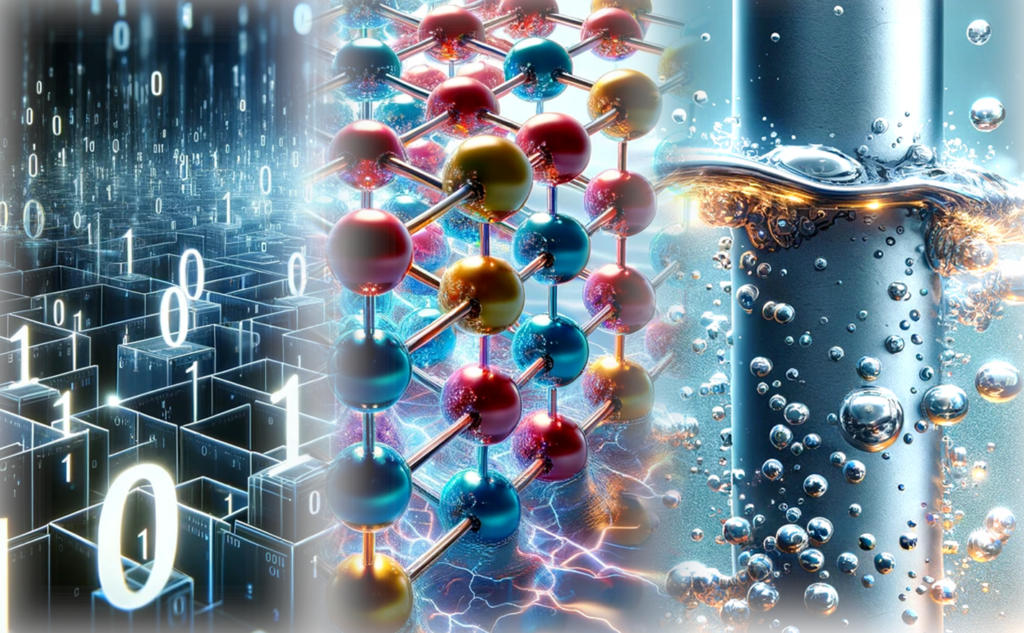
AMADEUS: Automated and machine learning driven design and discovery of high entropy ceramics perovskite oxides for energy applications
Coordinator: Assil BOUZID
IRCER – Institut de Recherche sur les CERamiques
(UMR 7315 CNRS/Univ. Limoges)
Keywords: Modeling, high-throughput, machine learning, workflow, database, perovskites, high entropy ceramics, hydrogen, electrochemical water splitting, 3D shaping

In the current socio-economic context in France and Europe, energy management is crucial at all levels, from production to storage and distribution. Our project focuses on the challenges of producing energy from green sustainable resources. We specifically aim at developing a new family of electrocatalysts based on non-noble, active and stable ceramic electrodes, using a comprehensive exploratory approach that integrates advanced modeling approches, high-throughput screening, artificial intelligence, data mining, as well as synthesis and shaping techniques.
We focus on the study of high-entropy ceramics within the perovskite oxide family, a largely unexplored family of materials offering promising potential in water electrocatalysis. However, identifying stable and efficient high-entropy materials for electrocatalysis in this new family requires a breakthrough in numerical design approaches due to the immense space of chemical compositions and configurations it offers.
AMADEUS proposes an innovative strategy that will accelerate the discovery of new catalytically active perovskite phases through open-source tools, automated computational methodology and high-throughput screening. We will construct convex hull and stability domains as a function of high-entropy perovskite composition, and predict catalytically active compositions for H2 and O2 evolution reactions, based on reliable ab initio calculation methods already validated. The use of machine learning algorithms will considerably reduce the ab initio computational workload, enabling high-dimensional exploration of chemical compositions. We will develop specific neural network architectures based on ab initio data enabling faster prediction of material stability and catalytic activity.
In addition, all the data generated by AMADEUS will be grouped to build the first French database of high-entropy materials, freely accessible, and that will be exploited for the development of artificial intelligence tools. We will also use data mining approaches to highlight latent correlations between the composition, structure and properties of these materials. These numerical modeling efforts will enable us to define the “design rules” for high-entropy oxide materials, and streamline the study of electrochemical processes at the interfaces. The most promising systems identified will then be synthesized and shaped to assess their performance under real-life conditions. These experimental efforts will enable the development of appropriate synthesis and shaping protocols, as well as a detailed understanding of the electrochemical processes at the interfaces of high-entropy ceramics with water.
AMADEUS is a multi-disciplinary project that addresses various issues in the discovery and design of new sustainable materials for hydrogen production. We are seeking an exploratory approach that integrates modeling, automation, data management and exploitation, as well as the use of artificial intelligence, optimization of synthesis processes and 3D shaping of electrode materials. To achieve these objectives, AMADEUS brings together six teams of French experts (five laboratories) with a range of expertise covering all modeling and experimental aspects of the project, as well as an established international recognition. Such synergy in the consortium is a major asset for the success of this project.
AMADEUS pushes back the boundaries of research by proposing an innovative, multidisciplinary approach to accelerate the discovery of sustainable materials and thus, contributing towards adaptation and transition of green renewable energy sources.